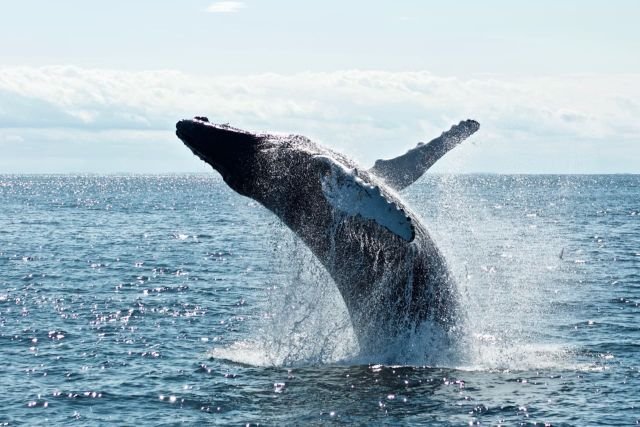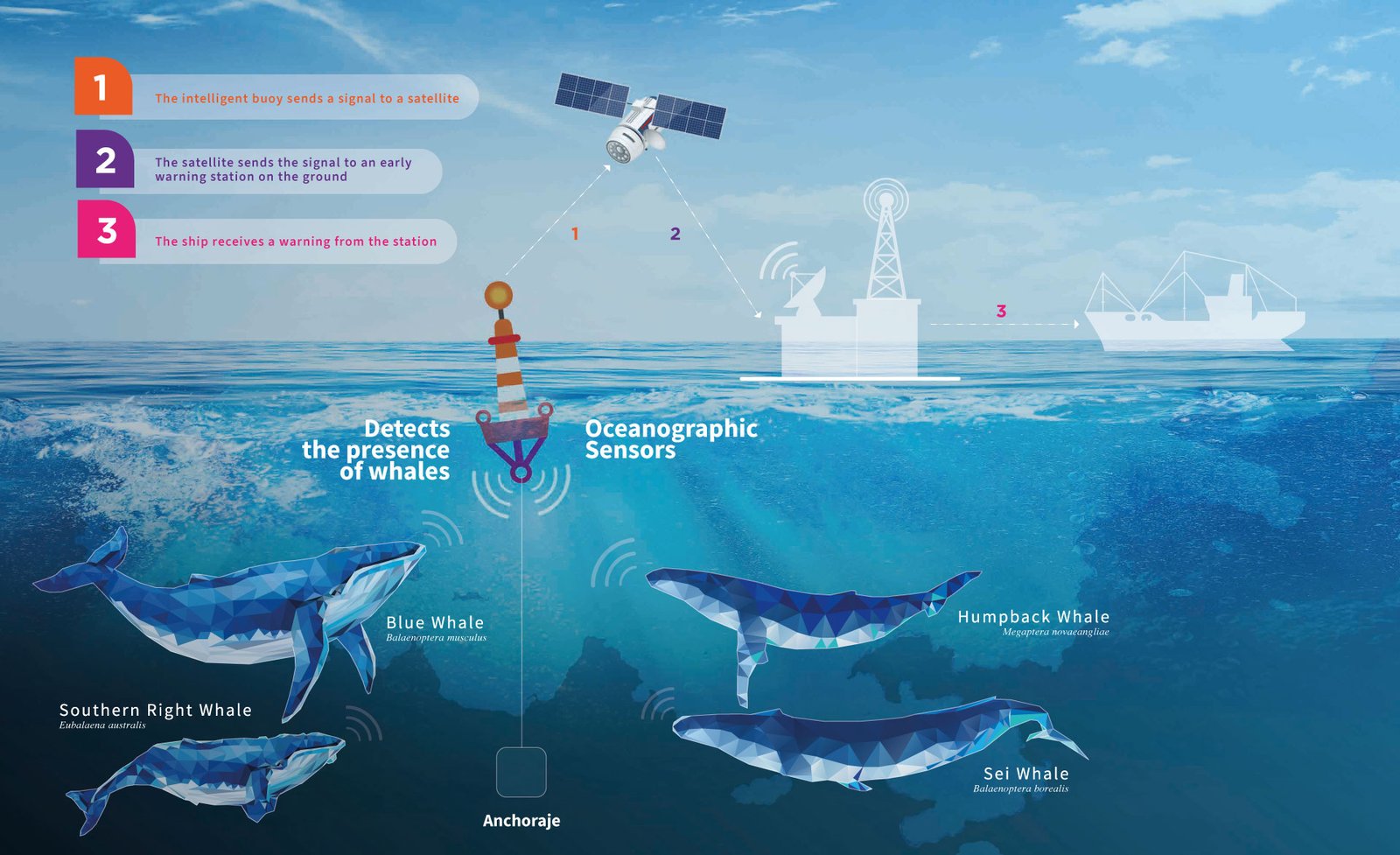News
Learn about BLUE BOAT Initiative
About Blue Boat
To date, no global effort has considered the importance of the ocean as a carbon sink nor the key ecological role that whales play in mitigating climate change.
Whales contribute to the removal of carbon from the atmosphere through the accumulation of large amounts of carbon in their bodies. Once they die, they usually sink to the bottom of the sea. A single 40-ton gray whale is capable of absorbing two tons of carbon, which could be trapped on the sea floor for more than 2,000 years.
The importance of the Chilean blue whale
Whales provides a 4 ecosystems service, allowing ourselves to value the positive impact they has in the environmental, social, cultural and economic systems and to recognize the important environmental impact that their loss represents.
Natured based solutions
The NbS are a new concept for the sustainable management of ecosystems and the services they provide, recoverying and increasing the benefits that nature provides to us. Challeges as climate change, food security can be handled and managed through this type of action.
The Role of Oceans
in Climate Change
All the inhabitants of the planet depend directly or indirectly on the oceans, as they provide 55% of the oxygen we breathe and are an important source of resources, such as energy, food, medicine, transportation, tourism, among others. In addition, they act as thermoregulators, since they absorb a thousand times more heat than the atmosphere, and redistribute it through the ocean currents.
THE BLUE BOAT INITIATIVE
The Blue BOAT Initiative (Buoy Oceanographic Alert Technology) is a project sponsored by the Chilean Ministry of the Environment, and carried out in conjunction with MERI Foundation. The project aims to preserve and protect whales, while monitoring the oceans, and studying and valuing marine ecosystem services, particularly those associated with the role of whales in the capture of CO2, which are necessary to address climate change.
The Blue BOAT Initiative is a complex whale early warning system for vessels that includes a network of smart buoys, and a passive acoustic and oceanographic monitoring system. This initiative is an addition to previously established protocols that protect whales in maritime traffic routes.
The Blue BOAT Initiative will begin in the Chilean Patagonia, in the Gulf of Corcovado, an area that holds the largest number of blue whales, to then cover the rest of the country. This project seeks to be replicable at a regional level along the Pacific, in order to protect the whales along their migratory routes.
Whales,
Ecosystem Engineers
Whales transport nutrients and improve the productivity of the ecosystem. They also help to reduce the stock of CO2 in the atmosphere, first by stimulating the appearance of phytoplankton, and second by accumulating large amounts of carbon in their bodies, which they take to the bottom of the sea when they die, making the ocean the largest store of CO2 in the ecosystem.
Let’s make the importance of whales in climate change mitigation visible.
Be the first to learn about updates, stay tuned to our social media.












